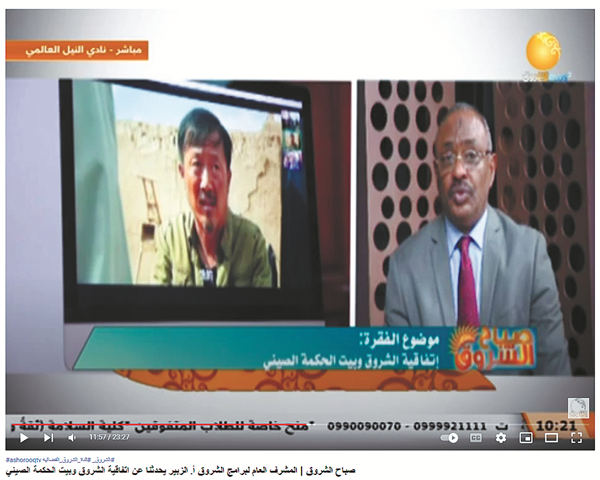

The translation and dubbing took nearly five months and involved more than 35 Arab voice actors, says Ma Xuejun, head of the translation team.
The series depicts a range of characters and the dubbing team has practitioners of all ages, from children to the elderly. At least three voice actors were asked to do the recording for each major character. The one who matched the tone of the character's voice best was the one to be finally selected.
A graduate of the Higher Institute of Dramatic Arts in Syria, Samer Safaf got the role of the main protagonist Ma Defu, a village official who is in charge of the relocation of the impoverished village where he was born. The official's job of persuading people to move to a new place and teaching them useful skills to make money was misunderstood at first.
The 32-year-old Arab says that, the more he dubbed, the more he understood how hard and valuable Ma Defu's job is.
"My anger was real when I became the protagonist and got refused by the villagers," says Safaf.
He fell in love with the role, and the protagonist's spirit of never giving up also inspired him. Safaf says that, with such persistent people like Ma Defu, he understands why China has thrived, growing from a poor country to an economic power.
The original series comprises 23 episodes. Its Arabic version was contracted into 15, devoted to the plot of the villagers' relocation and how they work to shake off poverty.
"Poverty is a problem facing many countries. Some rural areas in Arab nations are hit by sandstorms, lack of water and are trapped in poverty. It's possible that Arab viewers will be touched by the TV series, which demonstrates how the Chinese overcome such difficulties," says Ma Xuejun.
The ability to learn China's secret to success is what Ma Ning stressed when he promoted the drama to Arab TV stations and finally secured their collaboration last year.